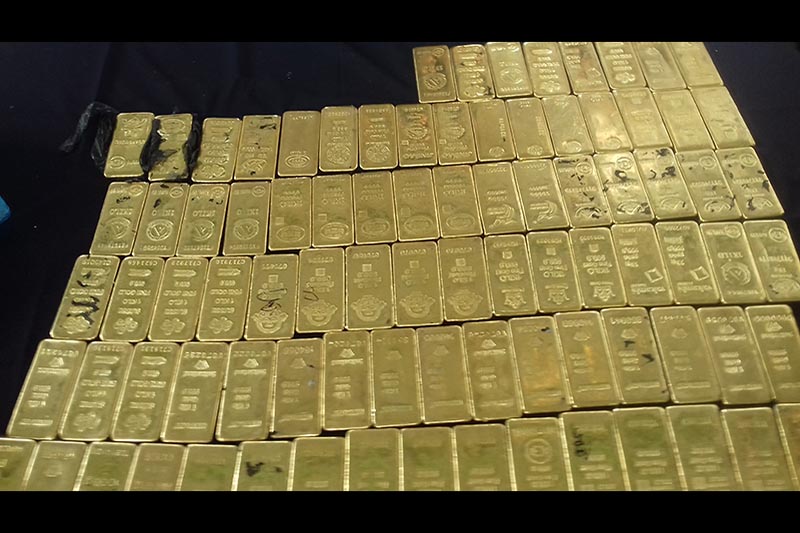Gold smuggling a cause for concern
Kathmandu, September 6
Recent incidents of seizure of massive amounts of gold being smuggled in and out of the country have shed light on what could possibly be a booming illegal market that could have adverse cascading effects on the economy.
According to Revenue Secretary Shishir Kumar Dhungana, if the government is unable to crack down on smuggling of gold in the country, it will expand the shadow economy.
Dhungana’s concerns are not exactly unfounded, as Nepal Police has seized over 400 kg smuggled gold in the last five years.
While the government loses customs revenue, the smuggling also hits income tax. This is because the government has only authorised commercial banks to import gold into the country. The tax administration could easily cross-check accounts of jewellery shops to track record of gold they purchased from banks.
However, jewellers have multiple benefits in purchasing gold from illegitimate market. Apart from saving an eye-popping Rs 420,000 while buying just one kilogram of gold, they can evade income tax as well.
But at the same time, the investment made by banks in gold can remain idle for long, as the demand for the precious yellow metal from jewellers dwindles. “This in turn can affect lending capacity of banks, possibly hitting sectors seeking credit for expansion and growth,” explained Bhuvan Kumar Dahal, CEO of Sanima Bank.
The government had introduced a regulation following the balance of payments crisis in fiscal 2009-10, whereby only commercial banks were allowed to import gold and that too no more than 15 kg per day. With cases of smuggling of gold on the rise, officials suspect that racketeers are tapping wages of migrant workers from concerned countries (supposed to enter the country as remittance) for buying bullion, which is smuggled in. Their families, on the other hand, are paid in hundi. This process could once again exert pressure on BoP as the country relies heavily on remittance to make its foreign reserves robust.
According to sources, racketeers and their agents divert remittance from the Gulf, Middle East and South Korea, where a large number of Nepali migrants are working.
“It is certain that due to smuggling of gold the country is losing foreign currency that was supposed to come to Nepal,” said Dhungana, adding, “Traders are also suspected of using smuggled gold as payment for under-invoiced imports, which has several implications.”
According to Dhungana, under-invoicing in import will adversely affect second and third tier economic activities and the real business efficiency of taxpayers.
Most importantly, the Ministry of Finance suspects that gold smuggling is also interconnected to money laundering. Nepalis holding dirty money may have resorted to the option of gold smuggling to make money in the underground economy.
In a bid to discourage gold smuggling, Nepal Police has started filing cases in courts under ‘organised crime’. Earlier, those arrested used to be released on bail. “Harsher punishments passed down in recent years are expected to control such illegal activities,” said DIGP Pushkar Karki, who is the chief of Central Investigation Bureau of Nepal Police. But he admitted that lack of proper equipment and expertise continued to pose a challenge in curbing such illegal activities.
READ ALSO:






